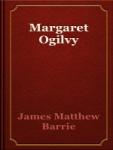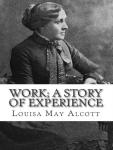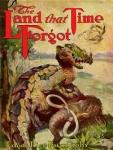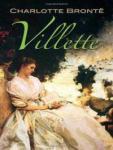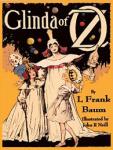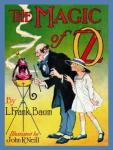My Lady's Money
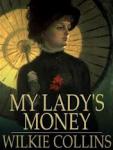
Originally published in 1877, Wilkie Collins's My Lady's Money is a social comedy about theft. A bank note is stolen from Lady Lydiard, and the wrong person is suspected. In order to discover the real thief, Robert Moody, who is in love with Lady Lydiard's adopted daughter Isabel, engages a sloppy investigator, Old Sharon. The novel blends detective fiction with social comedy. A popular and influential English novelist, dramatist, and short story writer, Wilkie Collins (1824-1889) was the son of a famous landscape painter, William Collins. Renowned for his sensational mysteries and romances, he is hailed as the inventor of the detective novel. Collins was a lawyer by training. Among his most famous works are The Woman in White (1860), The Moonstone (1867), and No Name (1862).
Related Books
Author other works
-
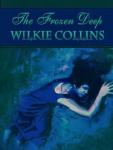
The Frozen Deep
Wilkie Collins
The Frozen Deep was a play, originally staged as an amateur theatrical, written by Wilkie Collins along with the substantial guidance of Charles Dickens in 1856. Dickens's hand was so prominent – beside acting in the play for several performances, he added a preface, altered lines, and attended to most of the props and sets – that the principal edition of the play is entitled "Under the Management of Charles Dickens". John C. Eckel wrote: "As usual with a play which passed into rehearsal under Dickens' auspices it came out improved. This was the case with The Frozen Deep. The changes were so numerous that the drama almost may be ascribed to Dickens". Dickens himself took the part of Richard Wardour and was stage-manager during its modest original staging in Dickens' home Tavistock House. The play, however, grew in influence through a series of outside performances, including one before Queen Victoria at the Royal Gallery of Illustration, and a three-performance run at the Manchester Free Trade Hall for the benefit of the Douglas Jerrold Fund to benefit the widow of Dickens's old friend Douglas Jerrold. There, night after night, everyone – including, by some accounts, the carpenters and the stage-hands – was moved to tears by the play. It also brought Dickens together with Ellen Ternan, an actress he hired to play one of the parts, and for whom he would leave his wife Catherine. The play remained unpublished until a private printing appeared sometime in 1866.
-

I Say No
Wilkie Collins
Emily Brown is an orphan girl that almost no one can help but love when they meet her. She is pursued by two worthy men: Mr. Alban Morris, the drawing master at her school; and Rev. Miles Mirabel, a clergyman. However, one of them is lying to her after she discovers that her father's death wasn't natural, as she was led to believe.
-
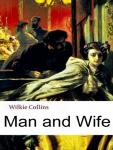
Man and Wife
Wilkie Collins
In 1855, a clever young lawyer called Delamayn finds a loophole in the Irish marriage laws which enables John Vanborough to annul the marriage that stands in the way of his parliamentary ambitions. The abandoned wife, Anne Silvester, lives with her old friend, Blanche, married to Sir Thomas Lundie, together with their respective daughters, also called Anne and Blanche.Twelve years later Vanborough, and Anne and Blanche senior are all dead. Sir Thomas has remarried but dies shortly after, when the title and estate pass to his likeable brother, Sir Patrick Lundie, a retired lawyer in his seventies. Sir Thomas is survived by his second wife, the overbearing Lady Lundie, now responsible for the two daughters. The lawyer, Delamayn, has succeeded in life and become Lord Holchester with two sons, Geoffrey and Julius.The main action of the story begins in 1868 at Windygates, the Perthshire home of Lady Lundie. Blanche is now 18 and Anne, acting as her governess, 25. Visiting them are Sir Patrick; Arnold Brinkworth, engaged to Blanche; and Geoffrey Delamayn, the school friend who once saved Arnold's life. Geoffrey has promised to marry Anne but is now trying to break the secret engagement because he will be cut out of his father's will. Anne persuades him to accept a secret marriage and knowing a little of the Scottish law arranges to go to a lonely inn at Craig Fernie where she will announce that she is waiting for her husband. If Geoffrey arrives and openly asks for his wife, the presence of witnesses will validate the marriage according to Scottish law.Geoffrey receives a telegram that his father is dangerously ill and must go to London with his brother. He therefore asks Arnold to deliver a message to Anne at the inn, carefully telling him not to use his own name but merely to ask for his 'wife'. Arnold reluctantly agrees but makes Geoffrey put the message in writing. The note, stating Geoffrey's intention to marry, is written on the back of a letter from Anne signed 'your loving wife'. Arnold arrives at Craig Fernie and to preserve Anne's reputation pretends to be her husband in front of the Landlady and the head waiter, Bishopriggs. Anne reads the letter which is subsequently stolen by Bishopsriggs while Arnold innocently continues the deception, sleeping on the sofa and leaving early the next morning.Lord Holchester recovers but on his sick-bed remembers he was responsible for the infamous treatment of Anne's mother and asks Julius to help her if she should ever need assistance. At the same time Lord Holchester will only accept Geoffrey back into the family if he makes a respectable marriage. Julius and his mother have in mind the young widow, Mrs Glenarm, whom Geoffrey will meet on his return to Scotland.Anne is worried about her marital status and without disclosing Arnold's name, has Blanche consult Sir Patrick. Geoffrey overhears the opinion that the marriage is ambiguous, but that two people are legally bound in Scotland if they pretend to be married. He therefore adopts the view that Anne is technically married to Arnold and he is free to marry Mrs Glenarm. By this time Geoffrey has agreed to represent the South in the great foot-race, a national athletic event against the North, although a medical guest in the house, Mr Speedwell, warns that the exertion would endanger his health.Anne visits Blanche at Windygates and meets Geoffrey who declares he cannot now marry her as she is already married to Arnold. In a state of shock, she deliberately leaves her friends and hides in Glasgow where she consults two different lawyers. They give conflicting opinions as to whether she is married and she collapses under the strain with a miscarriage.Ignorant of Anne and Arnold's position, Sir Patrick brings forward Blanche's wedding to Arnold. The couple are recalled from their honeymoon in Switzerland when Sir Patrick hears from Anne, who reveals Arnold's predicament and the conflicting legal opinions. Anne meanwhile recovers the stolen letter from Bishopriggs and tries to convince Mrs Glenarm of Geoffrey's prior marriage. Lady Lundie deduces that Arnold was the man at Craig Fernie and mischievously persuades Blanche to leave Arnold for her house in London where Mrs Glenarm is also staying. Sir Patrick must prove the Craig Fernie marriage is invalid to safeguard Arnold's position with Blanche, whereas Mrs Glenarm wants it confirmed so that Geoffrey is free to marry her.Geoffrey has rented a secluded house in Fulham, left to Lady Lundie's former cook Hester Dethridge, an elderly woman who is mute after a traumatic marriage to a drunken husband and communicates only in writing. Against medical advice Geoffrey completes his intensive training for the foot-race. On the last lap of the four-mile course he collapses, unable to continue. He is abandoned by his friends because they lost money on the race and is taken home by his trainer, PerryTwo days after the race, all parties attend a family conference with their lawyers. Geoffrey refuses to accept Anne as his wife and Blanche will not return to Arnold until the ambiguity of the Craig Fernie marriage is resolved. Anne, despite knowing she will have to return to Fulham, bravely produces her letter which according to the Scottish law of consent confirms her marriage to Geoffrey.Following the death of Lord Holchester, Julius has inherited the family title and visits Geoffrey to proposes a separation. In return Julius will honour an unsigned codicil to their father's will, leaving Geoffrey a secure income. Geoffrey, however, having no grounds for divorce, intends to kill his wife. Pretending he will be a good husband he refuses his brother's offer and keeps Anne prisoner in the house.Geoffrey has always been unnerved by the silent and withdrawn Hester Dethridge. The secret of her own terror of him is revealed in a written confession of murder. Years before, when she complained to the police that her husband ill-treated her and stole her money, they were unable to help because the law gave a married woman no right to her own earnings. She determined to kill him as the only way to end her misery. While her husband lay in a drunken stupor, she suffocated him through the partition wall of his locked bedroom after carefully removing and replacing the lathe and plaster. Hester was not suspected of the crime but now sees visions of a second self urging her to kill again.Geoffrey blackmails Hester into helping him murder Anne by the same means but at the last moment she sees the apparition again and attacks Geoffrey. In the same instant he suffers a fatal stroke. Hester is confined in an asylum while Anne, free of Geoffrey at last, supplants Lady Lundie by marrying Sir Patrick and becoming the new female head of the family.
-

The Two Destinies
Wilkie Collins
George and Mary are childhood sweethearts in Suffolk's Greenwater Broad. Despite a prediction from Mary's grandmother, old Mrs Dermody, that their two destinies are inextricably linked, George's father disapproves. He separates them by taking his family to America where he subsequently dies. George and his mother return to England where she marries Mr Germaine, a rich suitor she had known before her first marriage.George has no way of tracing Mary and leads a dissolute existence which prematurely ages his appearance. He reforms, trains to become a surgeon, and takes up an appointment in India. After being wounded in the shoulder, George returns to England where he inherits his step-father's fortune and estate in Perthshire. There is a condition that he must change his name to Germaine.Mary, meanwhile has suffered a serious illness which has totally changed her looks. She has married a Dutchman called Van Brandt and is also living in the same part of Scotland. When Mary discovers that her marriage is bigamous, she throws herself into the river but is saved by George.They fail to recognise each other but develop an almost telepathic attraction. George sees an apparition of Mary calling him to Edinburgh. They meet and he learns that Mary had dreamed of him at exactly the same time. She declines his help and he next sees her in London, still in company with Van Brandt. George proposes marriage but Mary, who has a baby daughter, refuses, for fear of spoiling his life.George goes away to the Shetlands to forget but injures his wounded shoulder. He is nursed back to health by the mysteriously disfigured Miss Dunross to whom he confides his story. On his recovery, he sees another apparition which leads him to Mary and her child, starving in lodgings near St Paul's. Van Brandt is in a debtors prison and George helps by paying off the debts. He again proposes but Mary goes abroad with Van Brandt.George's mother dies shortly after. Alone and in despair, he returns to Suffolk where he contemplates suicide. He is saved by a third apparition which takes him to the ghost town of Enkhuizen on the coast of Holland. Van Brandt has embezzled money from his old company and abandoned Mary and her child. When she refuses marriage for a third time, George resolves to drown himself and take Mary with him. At the last moment she sees a childhood memento which she once made for him. They finally recognise each other and their two destinies are reunited. Newly married, they are ostracized from society because of malicious scandal. They leave England to start a new life in Naples.
-
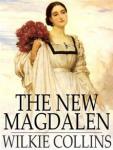
The New Magdalen
Wilkie Collins
Mercy Merrick has been tricked into the tragic life of a woman of the streets, after a childhood with strolling players and gypsies. She struggles to rehabilitate herself, inspired by a sermon given by a young clergyman, Julian Gray, in the refuge where she was living. Working as a volunteer nurse in the Franco-German war of 1870, she meets Grace Roseberry, a penniless but well-connected and respectable young woman. When Grace is apparently killed by a German shell, Mercy assumes her identity. Armed with a letter of introduction to Grace's relation by marriage, Lady Janet Roy, she is helped to reach England by Horace Holmcroft, a war correspondent and acquaintance of Lady Roy. Mercy is warmly welcomed and becomes her companion and adopted daughter. With Lady Roy's approval, she becomes engaged to Horace.Grace is not dead, however, since her life has been saved by a German brain surgeon. She returns to England and is introduced to Lady Roy by Julian Gray, but lacking the evidence to back up her claim, is rejected as an imposter. Mercy is about to confess but is antagonised by Grace's vengeful, unforgiving nature. Grace is deemed insane and is about to be confined in an asylum when Mercy once more comes under the influence of Julian Gray, who falls in love with her, and she finally admits her deception. Horace breaks off their engagement while Grace accepts £500 as a bribe for her silence and leaves for Canada. Lady Roy, genuinely fond of Mercy, tries unsuccessfully to persuade her to remain as companion. At first Mercy refuses to marry Julian, in order not to ruin his career and social position. However, he becomes seriously ill and when he recovers Mercy finally agrees to marry him. Rejected by society, they sail to the New World to start life afresh.

